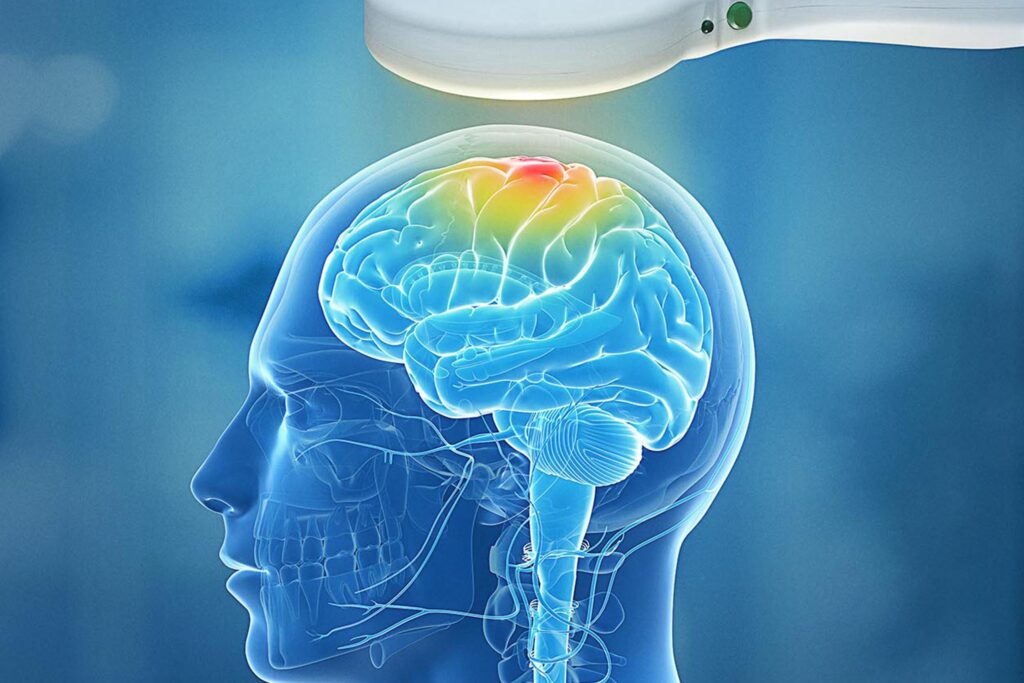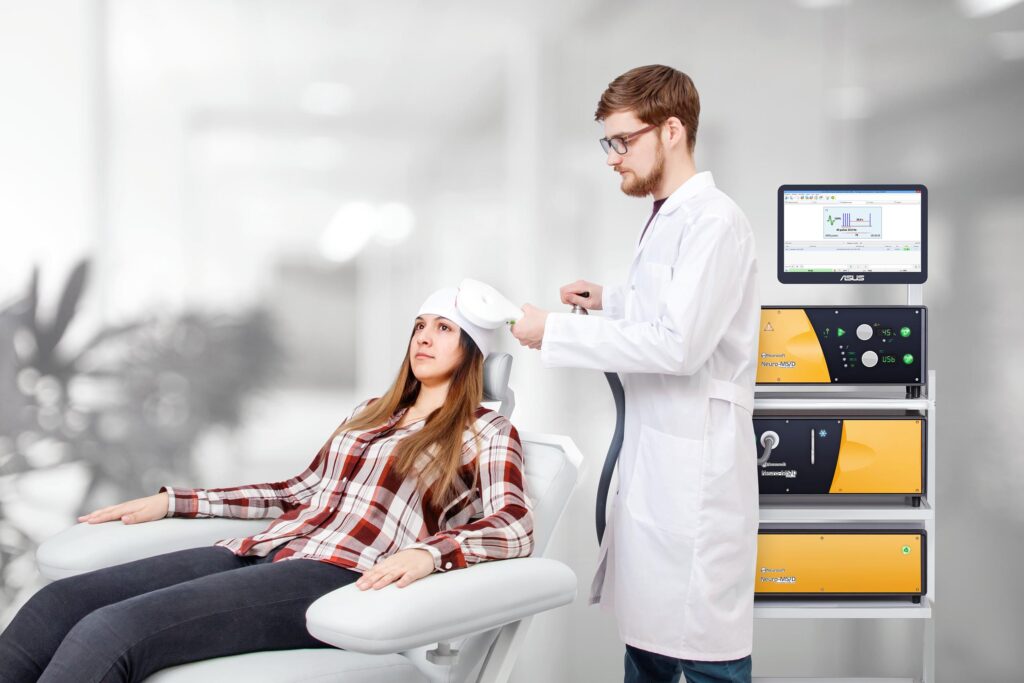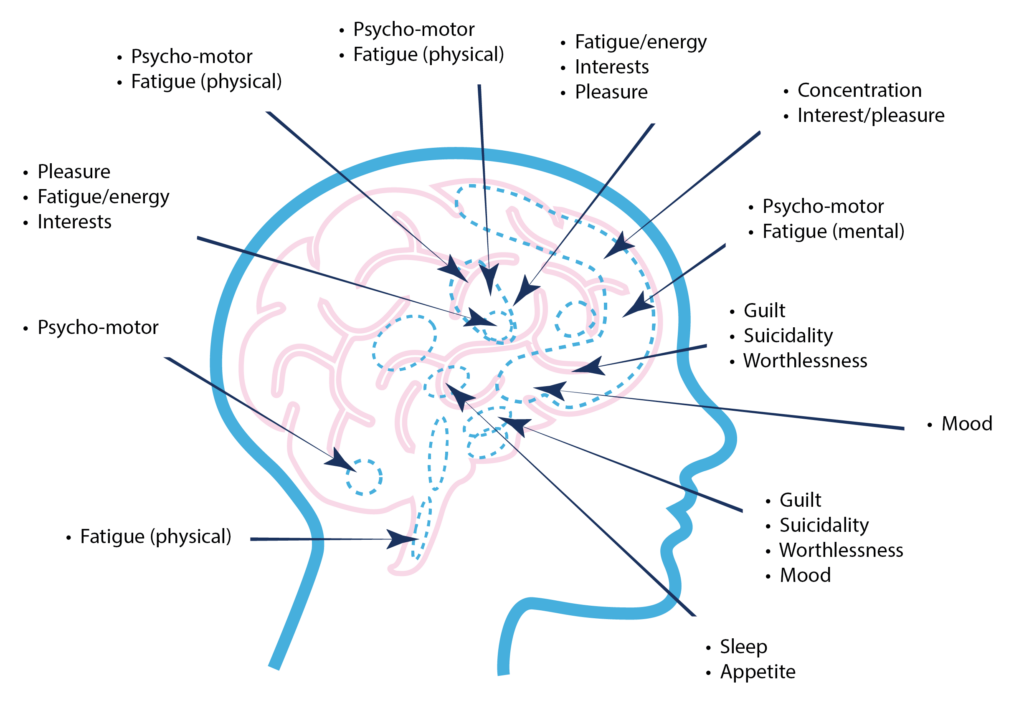Mon - Fri: 9:00 - 5:00
By appointment only
By appointment only

The TMS machine creates a powerful magnetic field through a coil which is placed next to the head at a carefully marked point (usually the dorso-lateral pre-frontal cortex).
The field penetrated about 1.5cm into the cerebral cortex and tends to make brain-cells communicate better. Other than some mild scalp discomfort and occasional headaches there are no real side effects.

Above Image: Depressive Symptoms